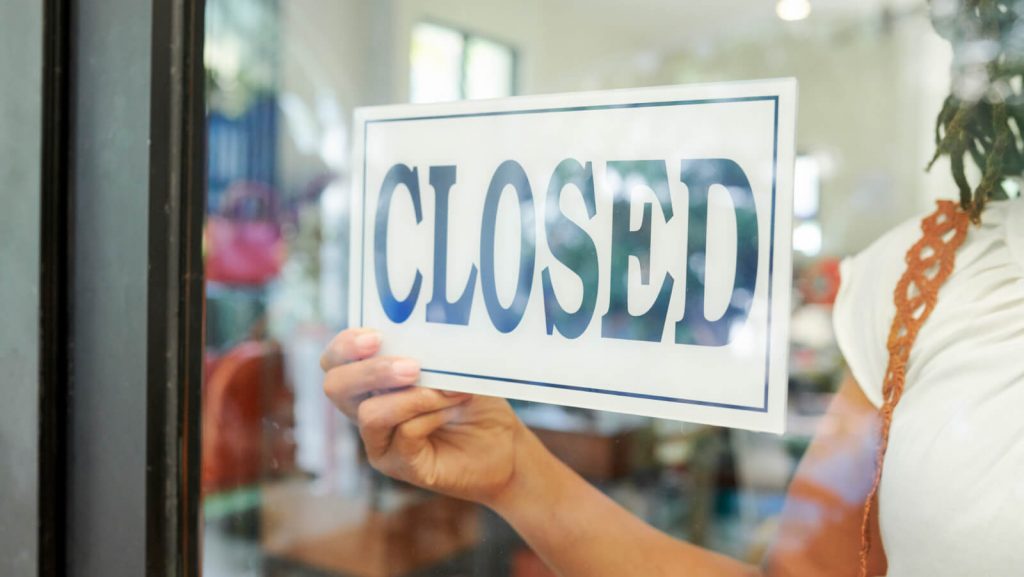You’ve decided to start an LLC.
Now, there’s a good chance you’ll need a business license if you’re selling products or providing services.
A business license is a government-issued permit allowing you to engage in specific business activity.
If you don’t have the licenses and permits required by your state, you could be forced to close down your business. At a minimum, you’ll have fines and penalties to pay for not obtaining the proper authorizations.
Running a business without proper licensing could also jeopardize any personal liability protection you’d have as the owner of an LLC.
State and local governments issue business licenses. Some states require general business licenses in addition to local municipalities that may require permits for specialized industries or trades.
This guide only provides a general overview of the business license application process.
Table of contents
- Step 1: Determine the type of business license you need
- Step 2: Research which state agency to apply to
- Step 3: Prepare the application paperwork
- Step 4: Pay the license fee and mark the date for license renewal
- Conclusion
- FAQs about business licenses
Step 1: Determine the type of business license you need
Business licenses come in the form of:
- Federal licenses and permits for nationally regulated industries
- General state-wide business license (required from all companies)
- Sales license (sales permit) — a sales tax certificate
- Occupational licenses (specialty, professional), required of specific professions
Additionally, you may need to complete employer registration if you plan to hire employees or get hazmat permits if you’re dealing with sensitive substances.

Below is an exhausting overview of all types of business licenses.
Federal licenses and permits
Airlines, alcohol producers, wildlife, and agriculture companies must have a valid federal business license to operate — in addition to any applicable state license requirements.
For example, getting a liquor license for selling alcoholic beverages is state-regulated, but selling liquor wholesale across the border requires a federal permit.
The legal provisions here are tricky, and you’ll have to do extensive research on different federal agencies.
It’s best to contact the local licensing division first. They can help answer questions to ensure you have all the necessary state licenses and permits that you would need to operate your business. If they point you towards the feds, it’s best to get qualified legal help.
General business license
Some states, such as Nevada and Florida, require locally incorporated LLCs to obtain a general operational license.
Other states don’t have this procedure. You can check with your local business licensing office or Secretary of State to determine if this will be needed.
You also need to consider your business location. For example, suppose you’re doing business in other states (you incorporate in Delaware but live in New York State). In that case, you’ll need to comply with the licensing requirements in both states.
“Doing Business As” (DBA) license
A “doing business as” isn’t a license per se but rather a document some company owners and sole proprietorship may wish to obtain. Also called “assumed name,” “fictitious business name,” or “trade name.”
A DBA allows you to operate under a business name different from the one you’ve listed on your company formation documents. That’s provided that the name is allowed and available in your state.
For example, if the legal name of your business is “Joe’s Enterprises,” but you’re a roofing company, you might want to advertise your business as “Joe’s Roofing.”
In this case, you’d need to get a DBA and pay applicable state fees.
Sales and use tax license (sales permit)
The general rule is that if you’re selling a physical item, you must charge and collect applicable sales tax. It’s done by adding the tax amount to the item’s sales price and collecting it from your customer at the time of sale.
If you sell these items across state lines, you may also have to collect and remit sales tax based on that state’s rules. It’s called a sales tax nexus. A CPA could better explain to you when your obligations for sales tax may kick in.
The state tax authorities, usually the Department of Revenue, issue a sales tax permit and sales tax ID number. In many cases, the permit is free or costs less than $20 annually.
Most state tax authority websites also provide:
- Detailed instructions for collecting and remitting sales tax
- Collection methods and reporting schedule
- Obligations and penalties due to misreporting
Because sales tax rates and requirements vary by state, check to see how often you’d need to file sales tax returns and how much you’d need to do.
Likewise, certain cities also charge extra local sales tax rates (while others don’t) atop the state-wide sales tax.

Now you’re probably thinking — ugh, this is too complex. Well, fret not. Most accounting apps designed for online sellers help automate sales tax compliance.
VAT application
The Value Added Tax (VAT) is a duty charged on goods or services throughout the supply chain cycle — from manufacturing to final sale.
So if your US business plans to sell products to EU consumers, you’ll be bound to collect and remit VAT to local authorities. Likewise, suppose your business purchases supply materials from the EU or commissions local services. In that case, the EU company will have to charge you a VAT.
But if you have a valid VAT number associated with your business, then you could benefit from the reverse-charge mechanism. This system lets you receive a tax credit for all the VAT paid to another company if you provide a valid local tax identification number.
VAT numbers are issued by a country’s tax authorities. Requirements vary, so check with your tax or compliance team about VAT requirements specific to your business.
Occupational (professional) license
An occupational license grants professionals in regulated industries permission to operate their venture.
Professions like doctors, lawyers, nurses, accountants, electricians, estheticians, teachers, and therapists require occupational licenses to operate.
Every state licensing body provides a complete list of professions requiring an occupational license. So it’s always a good idea to check with your state in case your business falls in this category. Licensing applications can be completed online with most states’ licensing and permit divisions.
Professional licenses are due for periodic renewal. The initial application fees vary a lot from $10 to $1,000, depending on your line of business. However, most licenses are in the $50-$150 range.
For example, a Georgia Certified Public Accountant (CPA) candidate would apply for their license with the Georgia Board of Accountancy. To qualify, they will have to pass an exam ($1380) plus pay the initial $140 license application fee.
Once granted, the license must be renewed annually. The board will only renew licenses for those who meet the annual professional educational requirements.
Industry-specific license
Similarly, many states choose to regulate specific industries rather than professions. For instance, businesses like restaurants, childcare facilities, beauty establishments, and financial institutions must obtain additional licenses and permits.
For instance, a restaurant may require a:
- Foodservice license
- Sign permit
- Liquor license
A hair salon must have a business license and occupancy permit. If they employ cosmetologists, each professional must also be individually licensed.
Home occupation permit
Some new business owners think permit requirements don’t apply because they’re running a business from home.
But this thinking could subject you to lawsuits in case of injury or complaints about your business.
To avoid fines or legal troubles, you might want to get this permit even if you’re baking cakes and selling them occasionally or taking care of friends’ children.
Common types of licenses and permits for home-based businesses include:
- Zoning permits
- Commercial sign permit
- General business license (if applicable)
- Specific home occupation permits (issued by county clerks or city authorities)
Home occupation permits costs and requirements vary, depending on the municipal code. For instance, Calvert County in Maryland issues home occupation permits for $50. But Sacramento, California officials collect a $154 fee.
Zoning permits
A zoning permit effectively allows you to either:
- Safely operate a business in line with the areas zoning laws
- Conduct any type of construction work for a new business within the city limits
- Remodel an existing lot into a business lot in a compliant manner
You can get a zoning permit from the city where your business is registered. This local government agency regulates the zoning codes and building requirements.
For example, in Denver, Colorado, a business must have an informational meeting with the authorities before applying for a new zoning permit.
Zoning permit fees vary depending on the complexity of your project. A permit for simple remodeling work could be $20. But constructing a new shopping mall will likely require several thousand dollars building permit.
Health permits
Any business selling products or services that humans can consume or touch requires a health permit.
Thus, health permits are mandatory for:
- Food services
- Tattoo parlors
- Beauty salons
- Bakeries
The business must meet minimum health requirements to be issued a permit regulated by the state’s health department.
Sign permits
If you’re establishing a physical business, having a sign helps attract more foot traffic. Plus, it makes the work of mail carriers so much easier.
Whether you want to place a business sign on your home business or a commercial lot, you’ll need to obtain a commercial sign permit from the city authorities.
The permit cost is based on the size of the sign and can range from $50-$250. In addition to fees, states may also require a copy of your business license, property surveys, and authorization from the property owner to put up the signage.
Environmental licenses
Environmental licenses are regulated by both the federal Environment Protection Agency (EPA) and state agencies. A company that transports, stores, or handles hazardous materials must obtain an environmental license.

Hazardous materials include such that pose an environmental risk or degradation. The company that picks up your trash, water treatment facilities, oil companies, and medical labs are examples of those who must have this license.
Fees vary based on material type and environment (air, water, land).
In Georgia, for example, an air permit fee is issued by the state’s Environmental Protection Division. It costs $650-$2,100 per year, depending on the type of emissions your facility releases.
Is a business license the same as an LLC?
No, an LLC and a business license are different concepts.
An LLC is a legal business entity structure offering personal liability protection to its members (owners). A business license is legal permission from the authorities to engage in a regulated activity.
It can be issued both to legal entities such as an LLC or sole proprietors — self-employed people.
Step 2: Research which state agency to apply to
There are many different types of business licenses.
And they are often issued by different governing bodies on either state, county, or city level.
Your next step is to figure out which authority to approach.
To make the job easier for you, here are some general guidelines on the responsibilities of different licensing bodies:
- Sales tax permits are issued by the state Department of Revenue.
- Federal employer identification number (EIN) can be obtained from the IRS.
- General business licenses are issued either by the Secretary of State or Local Licensing Body (e.g., the Department of Commerce or the Department of Occupational Licensing).
- Zoning, health, and sign permits are issued by city officials.
Always check your local state government licensing department. They will have the most up-to-date information on what type of licenses may be needed for your business.
How long does it take to get a business license?
The average application timeline can be from several business days to six months across states.
In some cases, you can complete everything online and get a near-instant license approval.
Some agencies also offer expedited services for a fee. In other cases, licensing may require an exam, assessment, or inspection, which would delay the process.
Remember that you must research each state you plan to do business in to avoid any financial or compliance surprises. Requirements in one state may not apply in another.
Step 3: Prepare the application paperwork
You should apply for a business license immediately after your legal entity is formed or before opening your business to new customers.
While paperwork differs from state-to-state and license-to-license, in most cases, you need to have the following items ready:
- A description of the business, its planned activities, and physical premises
- Copies of business documents (e.g., articles of organization, EIN)
- Proof of state or local tax status (e.g., sales tax permits, employer registration)
- Lists of owners and managers and their contact information
- Filing fees, which can range from a few dollars for a local permit to several hundred or thousand for state-level licenses to operate
Can I get a business license online?
Yes, depending on the state, many of whom have created online portals to help you get started.
You’ll need to provide business owner contact information, business formation documents, state tax permit, and pay licensing fees.
Montana, Nevada, Utah, Pennsylvania, Rhode Island, Florida, and New York, among others, allow you to complete the entire application process online.
Step 4: Pay the license fee and mark the date for license renewal
Along with submitting the paperwork, all licensing agencies will collect a non-refundable application fee. Meaning that if your application is rejected, you’re not getting your money back. So triple-check all those forms!

Next, all business licenses have an expiration date, typically one to five years, depending on the license type. Many states are shifting to online application and renewal services to speed up the process.
New York State also offers online services to handle renewals. You may have to certify statements about compliance or education requirements to confirm your eligibility for renewal.
How much does a business license cost?
Business license costs vary by location and industry. Always check with your local state website and build out a budget to get the estimated costs.
Remember, some can be free or cost next to nothing, such as a sales tax certificate, but some professional licenses costs can range from $50 to $400. The prices are always dependent on the state(s) you’re doing business in.
Conclusion
There’s a lot that goes into setting up a business. As exciting as this time is for new business owners, don’t let your giddiness overshadow the need to set your business up properly.
Business licensing isn’t the most fun startup activity. But it’s a must-do one for compliance purposes.
The best way to go about this cumbersome process is to start with your state’s licensing department. More and more states offer online business portals to tell you what’s needed to get set up quickly.
Also, consider retaining a CPA early on or partnering with a professional service provider who can handle the application process for you. You’ll have to pay extra fees for these services, but it can save you time and stress so you can focus on running your business.
FAQs about business licenses
Here are the frequently asked questions about business licenses.